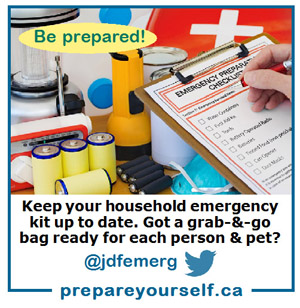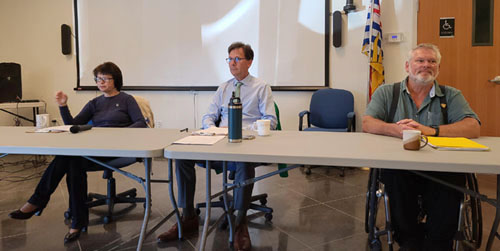
Sunday September 30, 2024 | OTTER POINT, BC [Updated October 24, 2025]
BC ELECTION CAMPAIGN DAY 10 of 28
Campaign news insights by Mary P Brooke | Island Social Trends
Your 28-day voter’s guide for BC Election 2024
As can often happen, format can get in the way of the content and success of a political all-candidates meeting.
This was the case at the all-candidates for Juan de Fuca-Malahat candidates in Otter Point yesterday.

Hosted at the CRD Juan de Fuca Area Building by the Otter Point and Shirley Residents and Ratepayers Association (OPSRRA) the gathering which attracted over 100 people into a small room could have done a better job of getting out of its own way to let the candidates shine.
Instead, the mishmash produced by the disordering of pre-determined questions and interjections about one particular (likely worthy) water protection issue ended up with the audience of keen politically-engaged residents holding onto a wagging dog’s tail of this issue and that.
The next MLA:
Seated at the front of the room at the September 29 all candidates meeting were the three candidates running to become the next MLA for Juan de Fuca-Malahat:
- Dana Lajeunesse (BC NDP)
- Marina Sapozhnikov (BC Conservative)
- David Evans (BC Green)
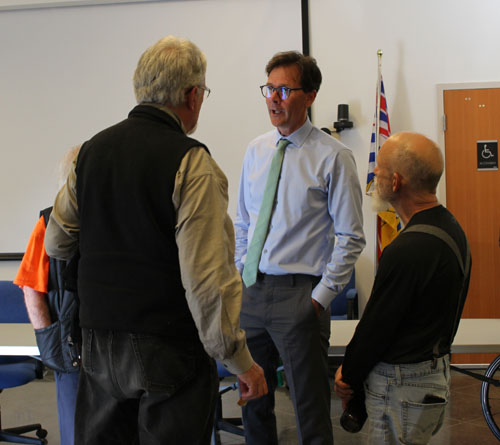
Voters in Juan de Fuca-Malahat are fortunate to have three articulate candidates, one of whom will represent them for the next four years in the BC Legislature.
With a geographical footprint of 3,116 sq km, Juan de Fuca-Malahat is one of the largest ridings on Vancouver Island. The newly-boundaried riding encompasses a wide swath of the south to central island from west east, including from East Sooke to Port Renfrew to Cobble Hill, Metchosin, and many points in between including Sooke and Otter Point.
Range of topics:
Covering a range of topics, in most cases each candidate drilled deeper into details or shed light upon their style or perspective on handling a given issue.
Topics that drew the most exploration or inspired response by the candidates included transportation, parks, water security, disposal of biosolids, Indigenous rights, and tourism as an economic driver for the region. To a lesser degree there was discussion of the deeper aspects of health-care and housing.
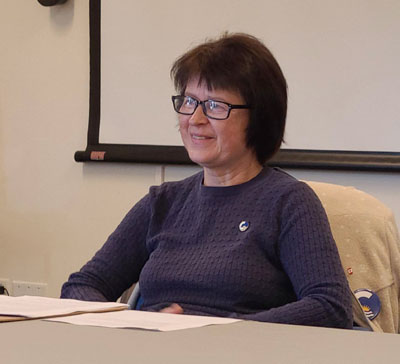
Not much was really resolved for any issue. It was more the perspective of the candidate that was sought by the attentive audience.
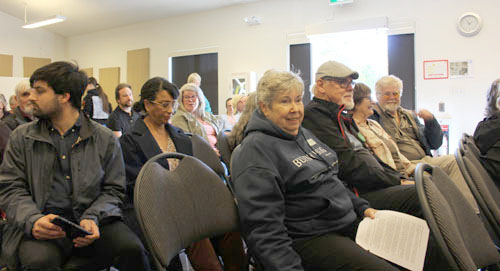
Delivering their introductions in this order, the candidates informed the audience about why they’re running:
- Marina Sapozhnikov (BC Conservative) was strong on her health-care background as a medical doctor and expressed deep concern about the importance of maintaining democracy in Canada. “Democracy is worth every effort we make to keep it going.”
- David Evans (BC Green) was strong on being a representative for concerns of the region, including transportation access to-and-from Sooke and sustainability of the region and overall lifestyle stability. “We can get back to the ship we were on.”
- Dana Lajeunesse (BC NDP) was strong on his lifelong residence in Sooke and being a third-generation logger. Hoping to follow in former Premier John Horgan’s footsteps, he said: “I want to continue in the direction that John set forth for us.” In that regard he highlighted health-care, education and transportation investments of the BC NDP over the past seven years.
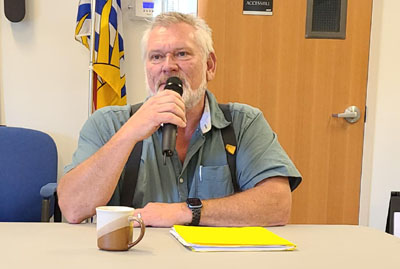
Who was there:
Attending from around the region, the audience included Juan de Fuca Electoral Area director Al Wickheim, District of Sooke Councillor Jeff Bateman with Carolyn Bateman, long-time NDP organizers Bob and Heather Phillips, Sid and Rosemary Jorna, Nicky Logins, Neil Poirier, David and Carol Mallett, Wendy Morton, Tracy Clark, Michael Nyikes, and Tom Myrick.
Supporters and campaign-handlers from all three teams showed up for their candidates.
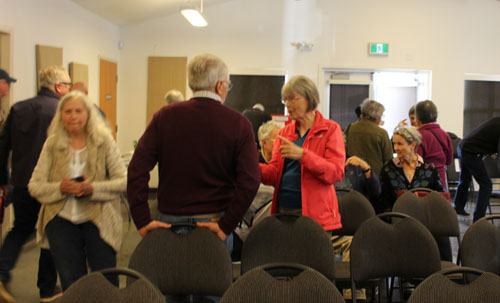
Housing and food production:
This was an interesting question from the moderator, to combine housing growth with food production capacity.
- Dana Lajeunesse: Housing development should leave “as light a footprint as possible on these lands we hold dear”. Water and infrastructure are key considerations for housing growth.
- David Evans: Housing and food security should be dealt with together, including how agricultural land can be accessed and utilized. “Land should be made available to people who actually want to farm it.”
- Marina Sapozhnikov: Food production should be doubled in BC. Agriculture technology, research and adaptability to the changing climate is necessary. She highlighted the CRD food and agriculture task force.
Biosolids handling:
As the Greater Victoria area grows, the Capital Regional District (CRD) is needing to find ways of disposing of biosolids (sewage waste).
Evans did a good job of outlining the current options (both possible and failed), noting that the LaFarge processing plan cannot take more than 2% of the CRD biosolids at their lower mainland facility and that an area near Nanaimo that is currently taking some waste may not always be available.
Sapozkkinov noted that Sooke Lake Reservoir is the only watershed that bans all entry. BC has a lot of water resource from rain, lakes and snow “yet we face a water shortage”.
Lajeunesse said that “dumping biosolids is not a good idea.” He quoted CRD Chair Colin Plant in saying “it’s a last-ditch solution”.
Audience questions:
There was very little time for questions from the audience.
But some topics were raised including protection of well water in the Juan de Fuca area, health-care (specifically around Bill 36 which creates more oversight of a range of health-care disciplines), protecting parks and green spaces, and division of the political spectrum.
===== RELATED:
- Tight race in Juan de Fuca-Malahat exposes long-time political divide (October 20, 2024)
- Greens support Juan de Fuca-Malahat candidate David Evans at fundraiser in Metchosin (September 11, 2024)
- BC NDP chooses Dana Lajeunesse as Juan de Fuca-Malahat candidate (July 21, 2024)
- NEWS SECTIONS: POLITICS | VANCOUVER ISLAND | BC ELECTION 2024



